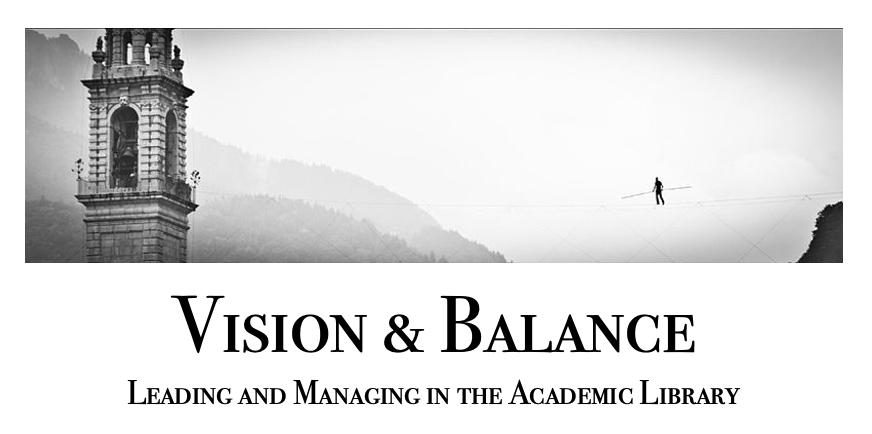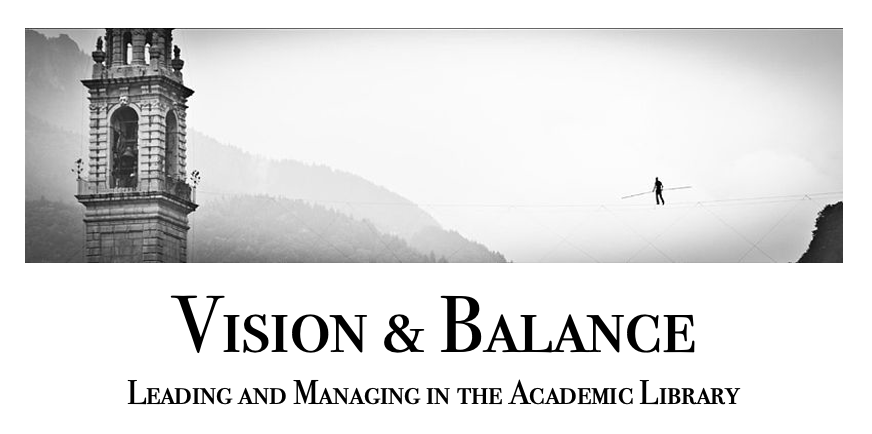Five Tips for Better Meetings
A few tips for making your meetings better -- when you need a meeting at all, that is.

In last Tuesday's post, titled "Two and a Half Cheers for Meetings," I discussed the obvious fact that meetings are an essential feature of work in academic libraries, but also the possibly less-obvious fact that meetings come at a different cost for different people – and that library leaders need to be aware of that fact and keep in mind that the same meetings that solve problems for them may create problems for others.
This leads to an obvious question: what can library leaders do to help ensure that the meetings they call and run are more effective, efficient, and maybe even enjoyable for all who attend them?
As promised, here are five ideas based on my own experience.
First, don't call an in-person meeting unless an in-person meeting is necessary. In my library I chair two leadership groups: Executive Administrative Council (which consists of myself and my associate university librarians, with my assistant as an ex officio member) and Administrative Council (which consists of the Executive Administrative Council as well as the library's controller, HR manager, and elected representatives of the library staff and faculty). Both of these groups meet weekly. But we also conduct quite a bit of work via email. When an issue arises that requires a vote but that I believe will be uncontroversial and need little discussion, we send the item out to the group by email and request one of two responses: either a yea-or-nay vote (which is delivered via closed electronic ballot), or a request for further discussion. If anyone makes that request, then we discuss via email; if the discussion becomes extended or complex, then we may suspend the vote and the email discussion add the item to an upcoming in-person meeting agenda. This approach allows us to spend more time in our in-person meetings focusing on genuinely knotty issues and less of that time on straightforward matters that are easily resolved. The principle here is that in-person meeting time is a precious and limited resource and should be spent carefully – both to respect the bandwidth of the meeting attendees and to ensure that we have enough time in our meetings to address the issues that really need face-to-face discussion.
Second, make sure those who need to be in the meeting are there – and those who don't need to be are not. I realize this may sound like a very obvious point, and it is. And yet all of us have had the experience of sitting in a meeting the agendas of which consisted mostly or entirely of items outside our sphere of stewardship or to which we were not in a position to bring useful insight. We have probably also all had the experience of trying to discuss an important issue in a meeting from which the main steward of that issue was absent, with the result that the discussion was inconclusive and possibly even a waste of time. Of course, no meeting can consist entirely of discussion items that are equally relevant to every member – but in order for any meeting to serve its intended function, it's essential that all genuine stakeholders in the issues under discussion be present; and it's also important not to take up the time of those who are not stakeholders if it can be avoided. One easy strategy to help with this principle is to front-load items on the agenda that require the presence of those who aren't normally part of the meeting. So, for example, if you need to invite your facilities manager to a general budget meeting, put the relevant agenda item at the beginning of the meeting so that the facilities manager can be released from the meeting once that item is finished.
Third, distribute the agenda ahead of time. Again, this may seem like an obvious point, and it is. But again, all of us have had the experience of showing up for a meeting, seeing its agenda for the first time upon our arrival, and wishing we'd had the opportunity to prepare better. Some leaders take this approach thoughtlessly or through poor time management ("Oops, that meeting is in 15 minutes and I need to put an agenda together"). Others – fewer, I think – hide agendas until meeting time as a power move. In either case, the result is going to be less effective meetings and more time wasted.
Fourth, be an Agenda Nazi. I discussed the importance of managing agendas firmly and carefully in a previous post and won't repeat all of those points here, but will simply reiterate how essential it is to manage the time allocated to individual agenda items wisely and consciously so as to ensure that the items at the end of the agenda aren't given short shrift simply by virtue of their place on the list.
Fifth, don't break into small groups. My last suggestion is one that, I confess, reflects my own personal preferences and my strong tendency towards introversion. But the more I talk with colleagues about meetings and meeting management, the stronger my perception that this is a very widely-held pet peeve. Hardly anyone seems to welcome that moment when the conference session or meeting leader says "OK, here's a topic. For the next ten minutes I want you to form groups of three or four, discuss it, and then prepare to report back to the whole group." Meeting leaders love this gambit: it allows them to offload a lot of the work of running the meeting onto everyone else. And I'll stipulate that small-group discussion can, in some cases, be very effective and generate good ideas. (Some people actually seem to... enjoy it.) But it can also be very expensive in terms of goodwill among the group as a whole and, in my view, rarely returns good value for that cost in goodwill. Personally, I may or may not have quietly slipped out of large meetings and found a quiet place to do other work when it became clear that there were going to be small-group breakouts, and I know I'm not alone in possibly having done that. Or not done it.
The above is by no means an exhaustive list of ways to make your meetings better, but I hope at least one or two of these tips will be things that you find helpful.
